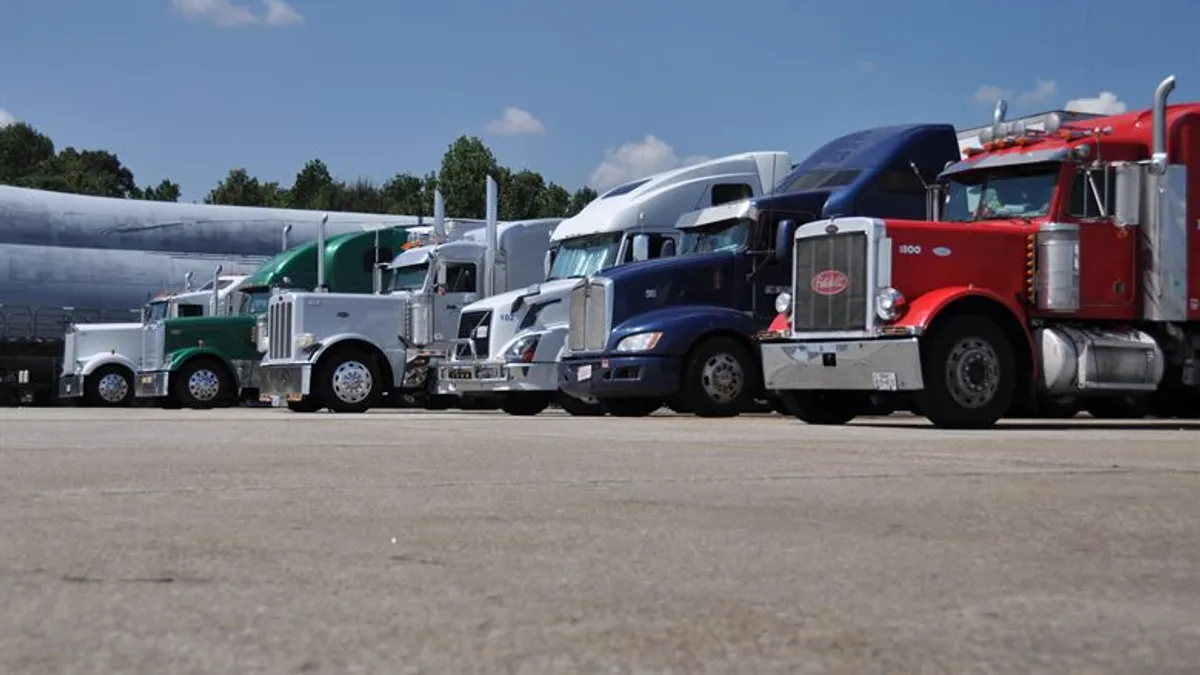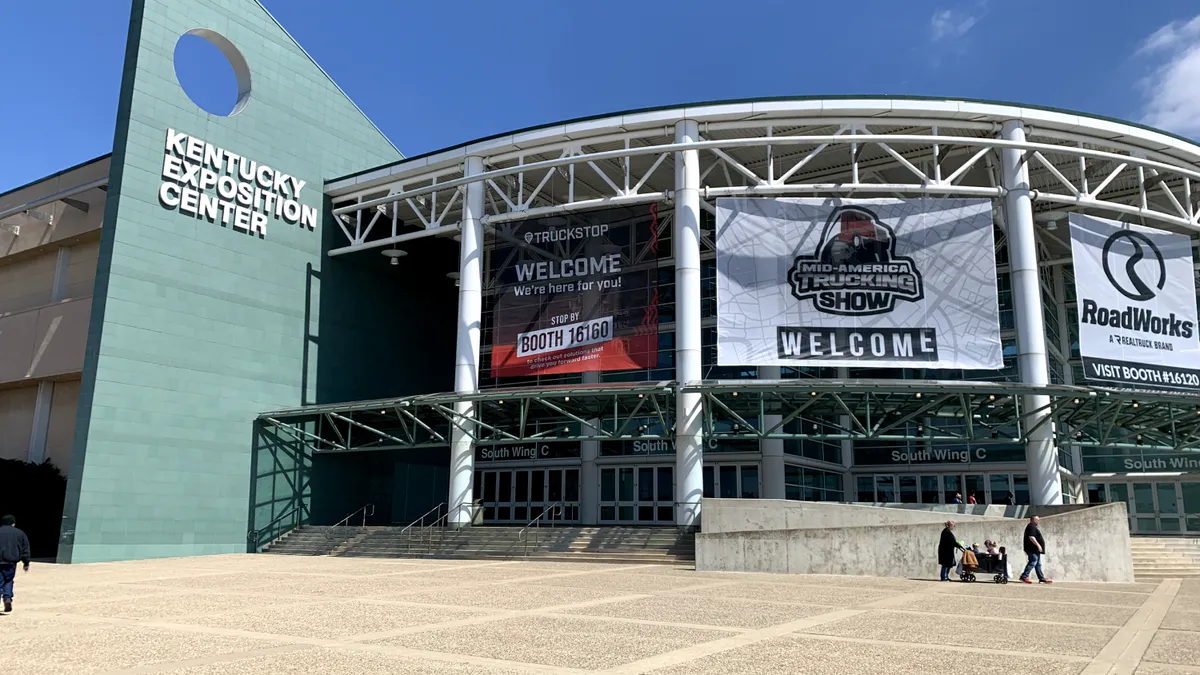Dive Brief:
- Large carriers with a technology focus are in the best position to capture market share in an overcapacity environment, according to Capstone Headwaters' Q1 Transportation & Logistics Public Earnings Update published Monday.
- "The ability to eliminate costs (not to mention errors) through automation and network density optimization are two meaningful ways to survive in an environment marked by overcapacity," Anant Vashi, director at middle market investment bank Capstone Headwaters, told Transport Dive. A tech focus also allows carriers to better integrate with brokers, he said, putting large, tech-savvy carriers in "a better competitive position versus mid-sized and small carriers who rely more on email and phone based rate negotiations."
- As capacity begins to contract, which may be happening now according to some economic indicators, financially healthy carriers "will be in a prime position to take market share from overleveraged or bankrupt competitors," the Capstone report stated.
Dive Insight:
When the pandemic stifled demand for many fleets as B2B, industrial, automotive and restaurant shipments dried up, agile fleets were in a position to pivot and capture market share in industries where demand was high, such as in food and beverage and healthcare supplies.
"I think this is an opportunity for large, well-capitalized, technology-savvy, good providers, quality providers to take share," Schneider CEO Mark Rourke said on the carrier's Q1 earnings call in May. "The technology play is becoming more and more critical across all platforms."
Werner executives said freight demand was holding up "fairly well," in part because the carrier conducted a risk assessment after the pandemic was declared, although they did not specify if they used technology for the assessment. The carrier categorized its 100 largest customers into low, moderate and high risk and focused on the "winners" in each industrial vertical, CEO Derek Leathers said on an April earnings call.
Knight-Swift was also able to shift gears due to its diverse customer portfolio and increase the share of essential goods in its customer mix.
Capacity is now tightening. DAT's van load-to-truck ratio rose 94% in May, compared to April when it fell below one, indicating fewer loads posted than trucks available. And Knight-Swift's CEO warned of "acute tightness" coming in Q4.
But even in a carrier's market, technology and agility are critical, as the market is cyclical and bound to swing back in a direction favorable to shippers. "Good times and bad, we're going to stay consistent with what matters, and that's investing in the five T's," Leathers said on the Werner earnings call, referring to trucks, trailers, talent, technology and terminals.
Vashi said fleets can use technology to improve their service scores with shippers. Strong reputations among the shipper community will be critical if carriers file for bankruptcy or sell off assets during tough economic times, opening an avenue to capture market share and customers.
Analysts have expressed concerns about YRC's financial standing and long-term viability, meaning agile carriers could have a chance to scoop up any market share that YRC may leave behind.













